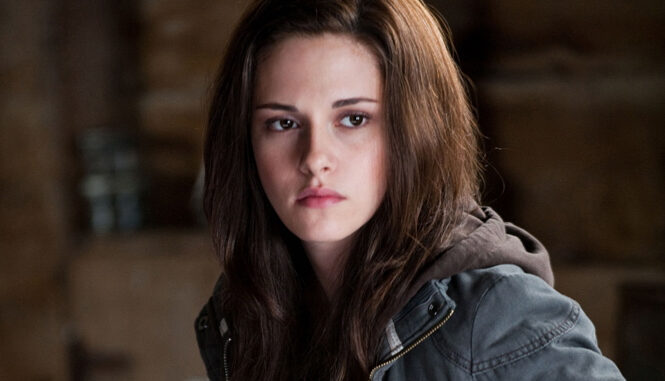
Embracing the Surreal: How "Crimes of the Future" is Reshaping Kristen Stewart's Career
Kristen Stewart, the once reluctant face of a teenage phenomenon, has spent the last decade meticulously dismantling the saccharine image thrust upon her by the "Twilight" saga. Her post-Bella Swan career has been a deliberate and fascinating exploration of independent cinema, marked by challenging roles in films like "Clouds of Sils Maria" and "Personal Shopper," solidifying her as a serious actress unafraid to embrace the unconventional. However, it's her collaboration with David Cronenberg in his dystopian body horror film, "Crimes of the Future," that feels like a defining moment, not just in her filmography, but in the ongoing narrative of her career as a whole. This film, her first genuine foray into a mainstream feature after years of art house dedication, isn't just another credit; it's a bold declaration, a visceral statement about her artistic aspirations and her unwavering commitment to challenging audience expectations.
Before "Crimes of the Future," Stewart's career trajectory was characterized by a deliberate rejection of the blockbuster realm. She chose intimacy over spectacle, nuance over broad appeal. Her performances were often introspective, exploring complex emotional landscapes and highlighting her ability to convey subtle shifts in character with minimal dialogue. This period was about proving her mettle, showcasing her commitment to craft, and establishing herself as a credible performer beyond the shadow of Edward Cullen. She traded the predictable comfort of mainstream success for the artistic freedom to explore darker, more complex roles.
"Crimes of the Future," however, presents a fascinating shift. While undeniably Cronenbergian in its grotesque beauty and unsettling themes, the film represents Stewart’s largest reach in a decade. This isn't just another indie darling; it's a mainstream feature directed by a cinematic legend, a film that premiered at Cannes and garnered significant attention. This suggests a willingness to broaden her audience without sacrificing the artistic integrity she has so carefully cultivated.
Her performance as Timlin, an outwardly awkward and sexually ambiguous registrar at the National Organ Registry, is crucial to understanding this reshaping. Timlin is a character that perfectly encapsulates Stewart's strengths: vulnerable, intelligent, and undeniably quirky. The role allows her to inhabit a world of body modification and surgical theater, to deliver Cronenberg's often unsettling dialogue with a detached yet strangely passionate delivery. She elevates the character beyond mere exposition, imbuing Timlin with a simmering curiosity and a palpable, if repressed, desire for the macabre artistry she witnesses.
Importantly, "Crimes of the Future" demonstrates Stewart’s ability to navigate the demands of a larger-scale production without losing her distinctive artistic voice. She seamlessly integrates her established sensibilities into Cronenberg’s vision, creating a character that is both quintessentially Cronenbergian and undeniably Stewartian. This fusion suggests a potential path forward for Stewart: a blend of independent spirit and mainstream appeal, allowing her to reach a wider audience without compromising her artistic principles.
Furthermore, the film serves as a powerful statement about Stewart's versatility. In a world obsessed with typecasting, she continues to defy categorization. From the lovelorn Bella to the emotionally fractured Maria Enders in "Clouds of Sils Maria" to the unsettlingly curious Timlin, she has consistently showcased her ability to embody a diverse range of characters, each with their own unique quirks and vulnerabilities. "Crimes of the Future" solidifies this versatility, reminding audiences that Stewart is not just a talented actress, but a transformative one, capable of inhabiting any role with depth and conviction.
In conclusion, Kristen Stewart's career trajectory has been one of conscious evolution, a deliberate act of self-discovery and artistic reclamation. While her dedication to independent cinema established her as a serious actress, "Crimes of the Future" marks a significant turning point. It's a mainstream feature that allows her to showcase her versatility, embrace challenging themes, and reach a wider audience without sacrificing her artistic integrity. This collaboration with Cronenberg is not just a film; it's a statement, a declaration that Kristen Stewart is not confined by past expectations, but is actively shaping her future, embracing the surreal and pushing the boundaries of her own artistic potential. It signals a future where she can seamlessly blend the independent spirit that has defined her career with the opportunities afforded by mainstream cinema, forging a path that is uniquely her own.
